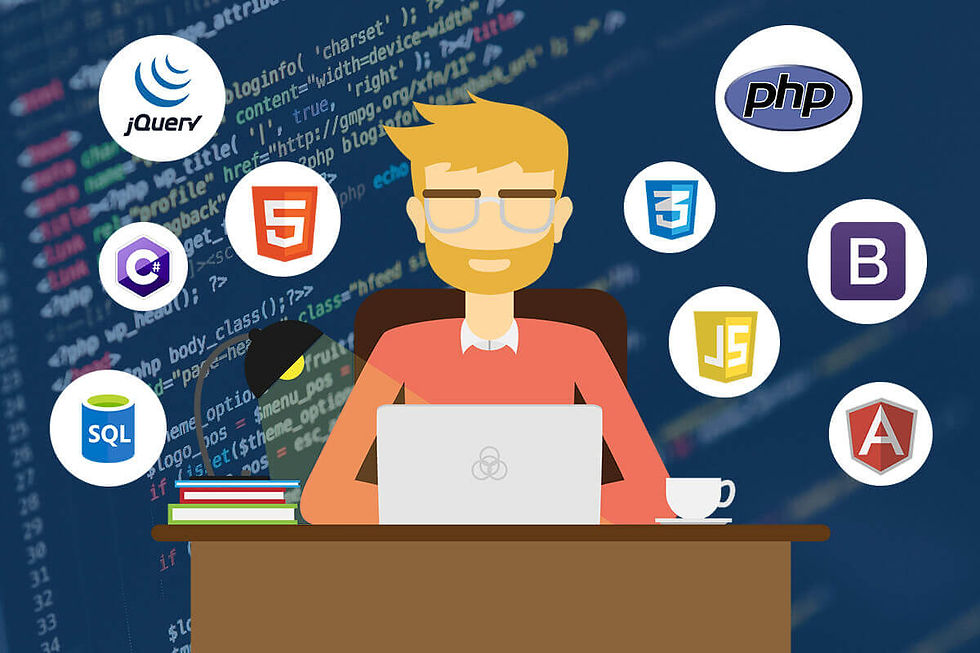Choosing the Right Programming Language for Cross-Platform iOS App Development
- jjohnsonliam1
- Jun 9, 2023
- 2 min read

In today's ever-evolving app development landscape, cross-platform frameworks have gained significant popularity. These frameworks enable developers to write code once and deploy it across multiple platforms, including iOS. However, choosing the right programming language for cross-platform iOS app development is crucial for achieving optimal results. In this article, we will explore various programming languages for iOS and discuss their suitability for cross-platform development.
JavaScript: JavaScript, being the language of the web, has become a prominent choice for cross-platform app development. Frameworks like React Native, NativeScript, and Ionic allow developers to write JavaScript code that compiles to native iOS apps. JavaScript's ubiquity and extensive developer community make it a viable option for cross-platform development. However, it's important to note that JavaScript-based frameworks may have performance limitations compared to fully native approaches.
Dart (Flutter): Flutter, powered by the Dart programming language, has gained substantial traction in the cross-platform development realm. Dart offers a modern and concise syntax, with features like a reactive programming model and a rich set of built-in widgets. Flutter compiles to native code, providing high-performance apps with a smooth and native-like user experience. Its "hot reload" feature facilitates rapid iterations and speeds up the development process.
C# (Xamarin): Xamarin, backed by Microsoft, allows developers to write cross-platform apps using C#. With Xamarin, you can share code logic and user interface across iOS, Android, and Windows platforms. C# provides a robust and statically-typed programming experience, ensuring code reliability. Xamarin.Forms further simplifies UI development by offering a single codebase for creating platform-specific UI components.
Kotlin (Kotlin Multiplatform): Kotlin, originally developed for Android, has expanded its reach to cross-platform development with Kotlin Multiplatform. This language allows sharing code between iOS and Android while providing interoperability with existing Java and Objective-C frameworks. Kotlin's concise syntax, null safety, and seamless integration with popular development tools make it an appealing choice for cross-platform iOS app development.
When selecting a programming language for cross-platform iOS app development, it's crucial to consider factors such as performance, community support, and ecosystem maturity. JavaScript-based frameworks like React Native provide a web-centric approach, while Dart (Flutter), C# (Xamarin), and Kotlin (Kotlin Multiplatform) offer their unique advantages. Carefully assessing your project requirements and the strengths of each programming language will help you make an informed decision. Regardless of your choice, cross-platform development empowers you to efficiently target iOS and other platforms, maximizing your reach and minimizing development efforts in the ever-expanding iOS application programming language landscape.



Comments